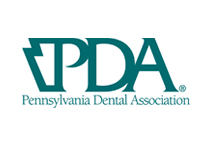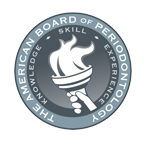Every six months, you should have a dental checkup. There are fewer chances of having a significant dental issue that requires extensive treatment for people who routinely visit the dentist. Regular checks have this benefit, and it’s just one of many. The list goes on and on. If you are looking for the Best Periodontist in Langhorne PA then you can contact us for treatment or a checkup.

Dental checkups are necessary for many reasons:
- Prevent plaque, tartar, cavities, and tooth decay with regular dental examinations
There are several locations in the mouth that even the most meticulous individual might overlook. Back molars, for example, are notoriously difficult to clean. Hence the need for a six-monthly dental check-up.
To detect early signs of tooth decay, the dentist will inspect the patient’s teeth. Dentists will begin fluoride treatment for tiny cavities and dental fillings for larger cavities if they detect them.
It will then be time for expert tooth cleaning to eliminate plaque or tartar from the mouth. As a result, plaque will be less likely to damage the teeth and gums.
Please note that Tartar means tooth decay caused by hard calcified deposits that accumulate on the teeth.
2. Regular dental checkups help prevent gum disease
For the most part, gum disease in its early stages is asymptomatic. Because of this, gum disease in the mouth is difficult to detect. Even when gum disease seems hidden, dentists are equipped to detect it.
Dentists will examine the gums during a normal examination and check to see if they are healthy and firm. They’ll look for swelling, receding gums, and deep gum pockets, among other things. The dentist will treat the underlying reason if any of these symptoms are found.
If the patient improves their dental hygiene, early gum disease usually goes away. A dentist will be happy to advise their patient on how to take care of their gums.
3. Dental professionals perform routine examinations to screen for oral cancer
Apart from the teeth and gums, a dental professional also looks for indicators of oral cancer in the mouth of his patients. Oral cancer can become life-threatening if left untreated.
Using a special light, the dentist searches for tumor-caused dead tissue. A cancer exam is called a VELscope. It’s quick and painless, and it only takes a few minutes.
A person who sees the dentist every six months will have a low risk of acquiring late-stage oral cancer with this exam, according to the American Dental Association.
4. Health concerns can be detected through routine exams
The head and neck exam is also a part of dental examinations, but it isn’t required. Lymph nodes, the neck, and the jaws will be examined for swelling, lumps, and other signs of sickness. A dental expert will send the patient to a medical professional if there is a problem.
People should look forward to going to the dentist for this reason. For the price of a dental appointment, they may have their thyroid evaluated. What’s not to love about it?
Have Frequent Dental check-ups to keep your mouth healthy
It is more likely that you will have healthy and strong teeth if you have regular checkups. If you live long enough, they will serve you well. You’re more than welcome to visit our offices for a dental checkup.
So why are you still here?
If you would like to schedule an appointment, please go here: https://premierperiodonticspa.com/contact-us/ or call (267) 908-4867 to speak with our Team.
Frequently Asked Questions(FAQ) for Dental Health:
- Should I use a different type of toothbrush or toothpaste?
Invest in a toothbrush with a gentle head. Ones with a medium or firm texture can damage teeth and gums. Utilize 2 minutes of light to moderate pressure twice a day.
Toothbrushes, whether motorized or manual, do a good job of cleaning teeth. All-flat, even bristles manual brushes are less effective than ones with a mixture of bristle heights. It may be easier to use a powered toothbrush if you have problems using your hands to brush your teeth.
You should replace your toothbrush every 3-4 months. If the bristles are bent or fanned out, toss it sooner. Bristles that are bent do not clean as well. In addition, they may be a symptom that you’re brushing too hard.
Pick a toothpaste for sensitive teeth if cold or hot foods or drinks make you anxious, and let your dentist know.
2 ) Is flossing really necessary?
You can’t avoid flossing your teeth every day. Cleans between the teeth as well as under the gumline. When plaque isn’t removed, it hardens into tartar, which creates wedges and expands the area between the teeth and gums, resulting in pockets between teeth and gums. Gums and teeth loosen over time.
The floss can be waxed or unwaxed. You can also use floss picks or interdental brushes to remove plaque.
3) What does Tartar mean?
Tartar means tooth decay caused by hard calcified deposits that accumulate on the teeth.
4) Are rinses and mouthwashes effective?
The use of mouthwashes for cavity protection, sensitivity, and fresh breath may be beneficial when used along with regular brushing and flossing, but not as a substitute for daily oral hygiene routines. If you’re not sure, ask your dentist for advice. To keep their gums healthy, some people must use a twice-daily rinse. You should avoid using mouthwash on children under the age of six to prevent them from swallowing it.
5) Is there a way to detect early indicators of dental issues?
Consult a dentist if you have any of these symptoms or if your child complains of ache or difficulty chewing.
- A painful mouth
- Weakness in the jaw
- Redness
- Oral and facial edema
- Tooth sensitivities
- Missing teeth
- Wet mouth
- Gums that bleed
Oral health problems such as poor breath or an unpleasant taste.
Get checked out as soon as possible to avoid more serious issues and infections.









